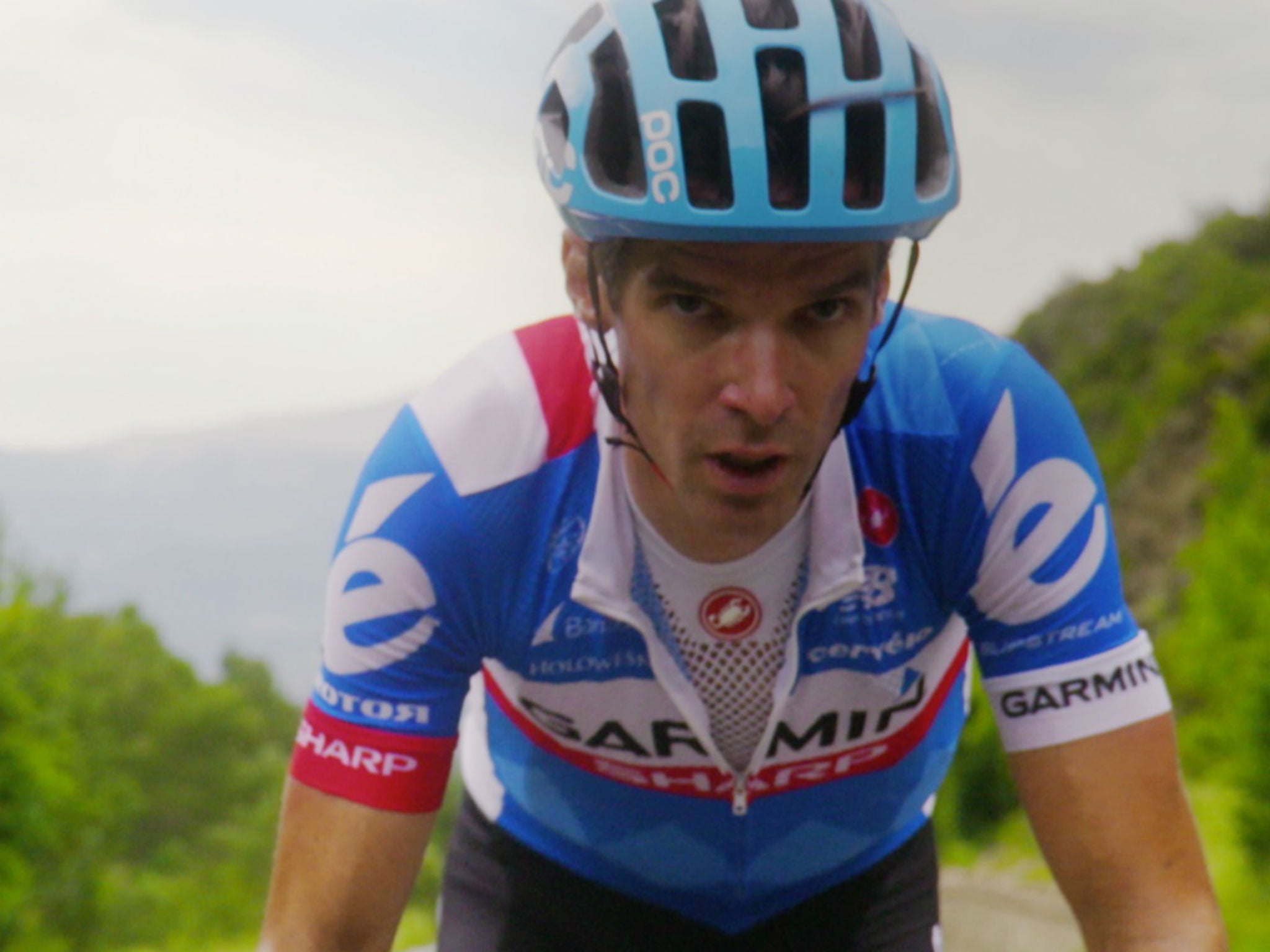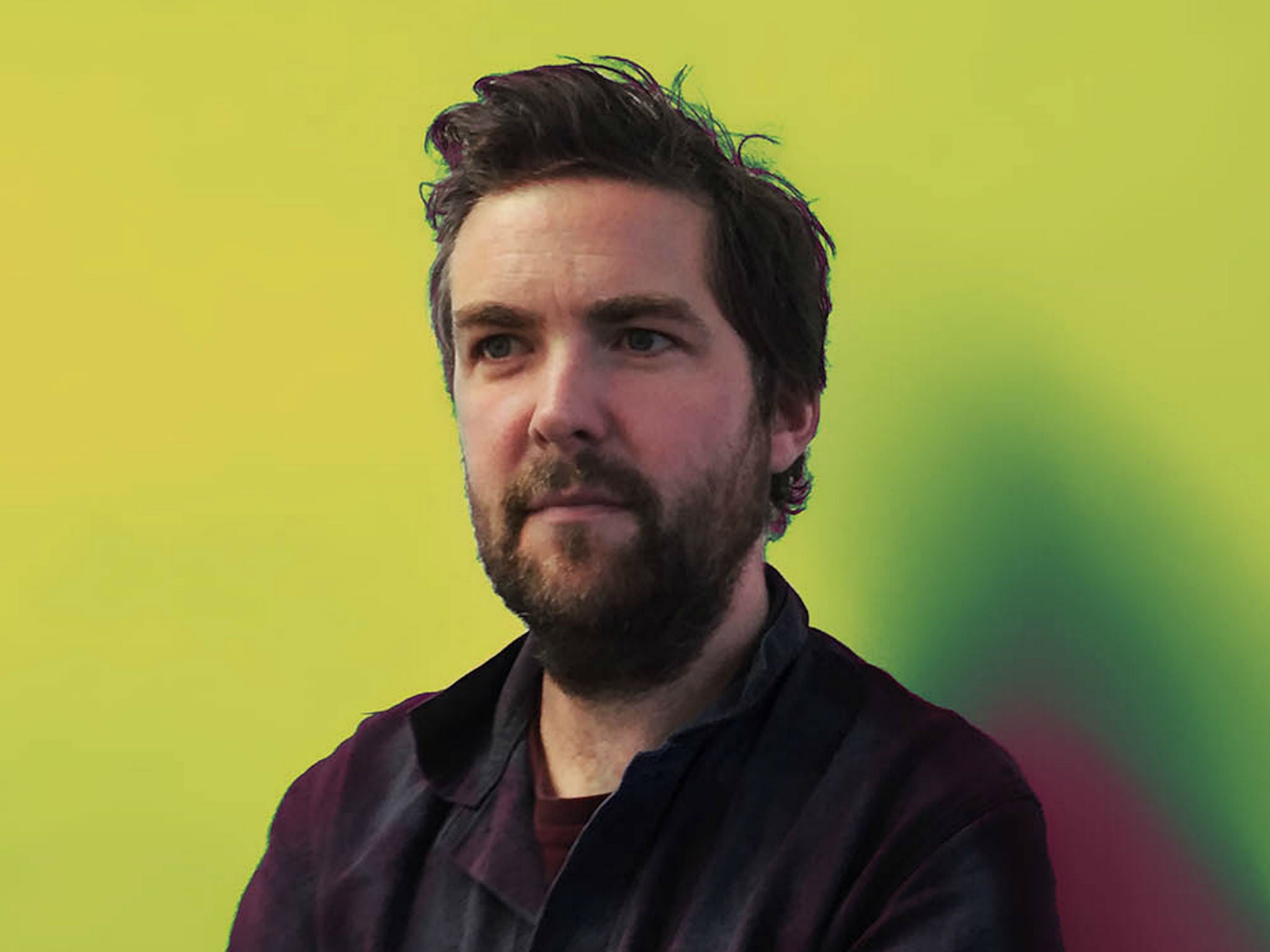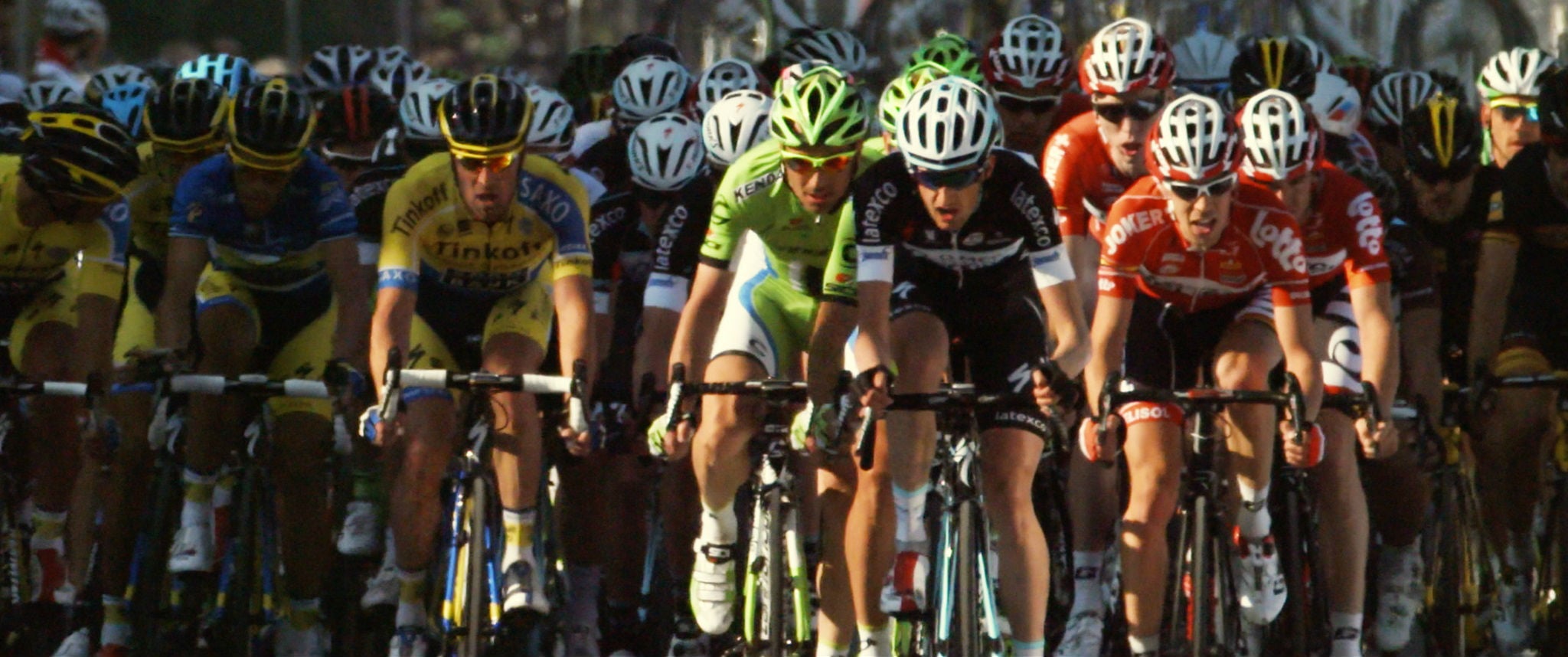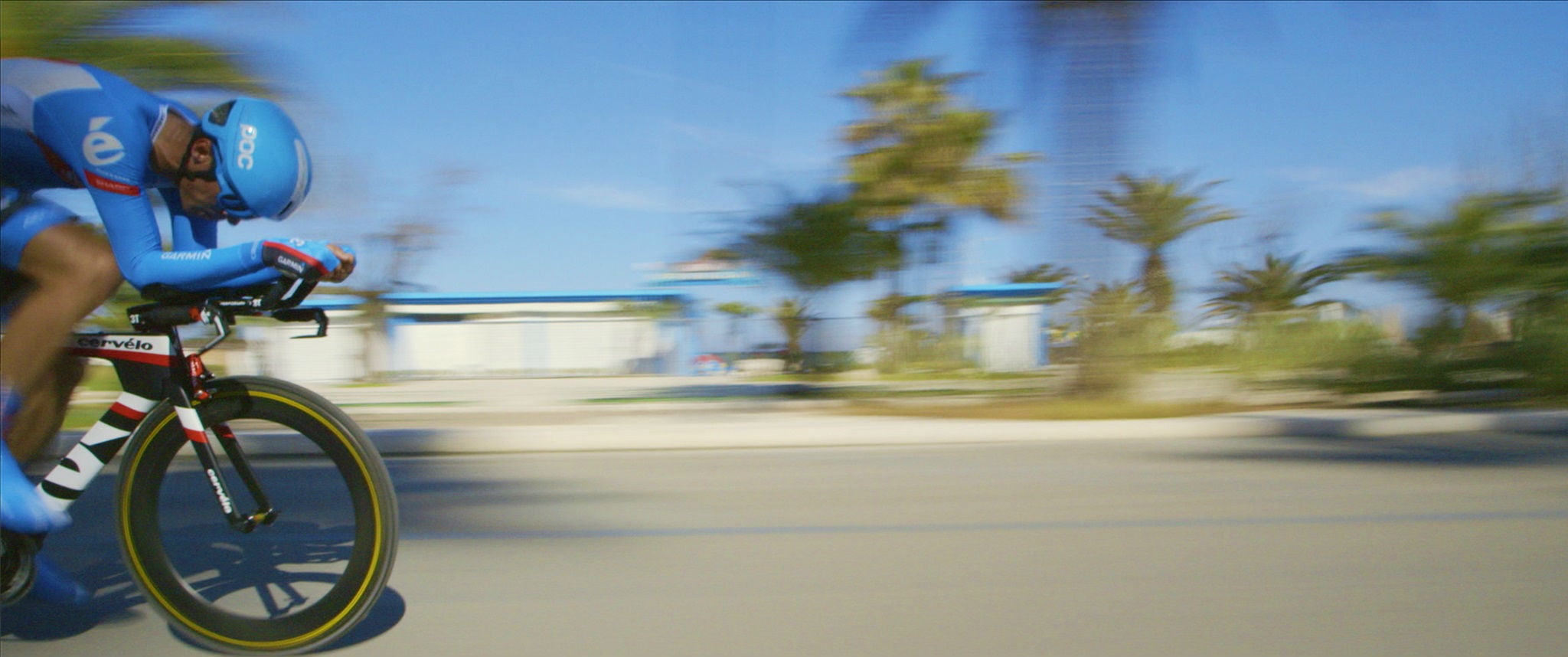'We train to suffer more': David Millar on a new documentary revealing the inner life of the competitive cyclist
Finlay Pretsell's remarkable documentary 'Time Trial' takes viewers right inside the cyclist's Tour de France effort

“That’s pretty much what we do… we train to suffer more,” Scottish cyclist David Millar observes midway through Time Trial. This is Finlay Pretsell’s remarkable new feature documentary about Millar’s attempts to compete in a final Tour De France in 2014.
Millar had already raced in the event 12 times but was coming towards the end of his career. There was a danger he’d be pulled from the team before the race started. He could push himself hard on the roads but not as hard as when he was in his prime.
He was 37: “too old; I’ve been around too long. I need to change.”
His ambivalence about cycling is obvious to see. It caused him agony and grief. He couldn’t give an interview without being reminded of his 2004 ban for doping. Nonetheless, the idea of no longer competing was far more painful than anything he endured on the saddle – especially when he was withdrawn from his team, Garmin-Sharp, shortly before the race began, denying him that final shot at the Tour.
Pretsell’s film takes us far closer to the world of the professional cyclist than any other of the many recent documentaries and features on the same subject. We feel we are in the middle of the peloton with Millar, watching the race from the inside. The director gives us the cyclist’s perspective when he is at his most exhausted, his head wobbling and his heavy breathing amplified on the soundtrack. He is a martyr to the sport he loves.
Interviewed alongside Pretsell on a rainy afternoon – in the unlikely setting of a Paul Smith store – the beret-wearing Millar cuts an altogether more dapper figure than in the film. His friendship with fashion designer Smith (a passionate cycling fan) stretches back to the doping scandal of 2003/2004.
Smith “sorted“ him out with a suit for his court appearance when he was about to be banned. Millar later reciprocated by collecting signed race jerseys from other riders for Smith.
“I was his pusher!” he jokes.
Millar and Pretsell had been contemplating making a film together ever since Millar had been shown Standing Start (2007), which Pretsell co-directed with Adrian McDowall. This was a documentary short which treats track cycling not as a sport but as an epic challenge akin to that faced by Greek heroes like Odysseus.
When Time Trial premiered at International Documentary Festival Amsterdam last autumn, critics immediately picked up on its extraordinary levels of access and intimacy. The film appeared to be lifting the lid on a hidden world. That, though, is not exactly how Millar sees it.

“It’s quite paradoxical. It feels like a ‘reveal,'” the Scot reflects. “But inside the peloton, nothing is private. You’ve got helicopters overhead, people are at the side of the road, you can’t have a conversation because people are all around you. The riders have already signed off on our privacy. Whatever you say you know is in the public domain generally.”
Time Trial was partly filmed by an out-rider on a motorbike who followed Millar closely throughout every leg. Millar himself was mic’d up. (We hear conversations between the cyclists in the middle of the pack not just on race strategy but often on such everyday subjects as where they spent the winter and what the weather is like).
One of the most refreshing aspects of the documentary is that it isn’t about the Lance Armstrong “lie” or Dr Ferrari’s nefarious prescriptions or EPO abuse or the dangers of hay fever medication or the number of puffs you can take on an asthma inhaler before you’re branded a cheat... Millar is asked by Pretsell about his doping but makes it clear he has already spoken on the subject hundreds of times before. There isn’t anything new to add.
The film’s concern is with the actual experience of road racing – the exhilarating highs and the dismal lows. It takes up deep into the mind of a bike racer.
After all, none of them got into cycling for the doping, Millar points out: “We got into it because we loved the thrill of it, the weirdness, the cult nature of it, just how spectacular it all is.”
Millar likens the riders on the Tour to “a circus,” travelling from town to town. “It is exactly the same sport it was 80 years. It has not really changed. The hotels are a bit better but you still share rooms.”

His powers may have been waning but in Time Trial, you can still sense Millar’s ferocious competitive spirit as well as his anger that he was pulled from the team.
“It would have been fine if it had been riders better than me but there weren’t. I just realised, you know what, I am completely expendable. If I am expendable to my team, I am expendable to everybody… I’d built that team, I had been really loyal and expected to carry on with them,” Millar says, making it very clear he felt betrayed.
“On a human level, it is massively disappointing that they could do that. This isn’t just about the Tour De France. It’s about the rest of our lives, trusting each other.”
He adds that he’ll “forgive” what was done to him – but, no, he won’t ever forget it.
Still, as Milllar himself points out, cyclists don’t fit comfortably within a team environment. “Almost every professional cyclist was a loner at school. That’s the reason they got into it. Cycling is not a school sport, it’s not a peer pressure sport. It is something you do for individualism, for escape – because you are fundamentally a loner.”
The best cyclists will move quickly up the ranks, from local to regional to national to international competition. “And all of a sudden, they will enter a super-team sport. You have a bunch of hyper-loners that have to operate at one of the highest levels of team operation you have in any professional sport in the world… there are very few sports in the world where you have 22 teams with nine guys in each team.”
Millar is highly unusual in a sport demanding such all-encompassing commitment in that he has always had other interests. He talks about the “alternative life” he built up outside professional cycling: keen on art, books (especially American authors such as William Faulkner and Cormac McCarthy) and fashion (he has his own clothing brand, CHPT3).
When his life “went to s***” after the doping scandal, he started reading biographies of artists and historical figures as he tried to figure out what to do next.

He was a consultant on Stephen Frears’ The Program, which dramatised the Lance Armstrong story. In his work on the project, Millar was “very conscious of trying to make sure that they didn’t burn Lance too much,” that the film was balanced.
The real problem, he suggests now, is that there was “too much information out there already. They couldn’t mystique it. Everyone had read all the books. There has to be big gaps in knowledge to allow a certain amount of historical and artistic license; they couldn’t do that.”
These days, Millar also commentates on cycling. “I get paid to watch bike races. I get paid to spectate and talk about it which is perfect for me because I wouldn’t probably watch them otherwise.”
Inevitably, given his profile, the drugs scandal, his re-emergence as anti-drugs campaigner, and his outspoken opinions, Millar has “quite a few haters” who’ll attack him on social media. “I actually have very thick skin about it. I know for a fact that their arguments are poor. They don’t know what I know. They haven’t seen what I’ve seen. They’ve never done what I’ve done. Their opinion means nothing to me,” Millar declares
Such single-minded stubbornness is surely what made him a successful cyclist in the first place – and then enabled him to rebuild his life after it threatened to crumble.
'Time Trial' is released on 29 June
Join our commenting forum
Join thought-provoking conversations, follow other Independent readers and see their replies
Comments
Bookmark popover
Removed from bookmarks